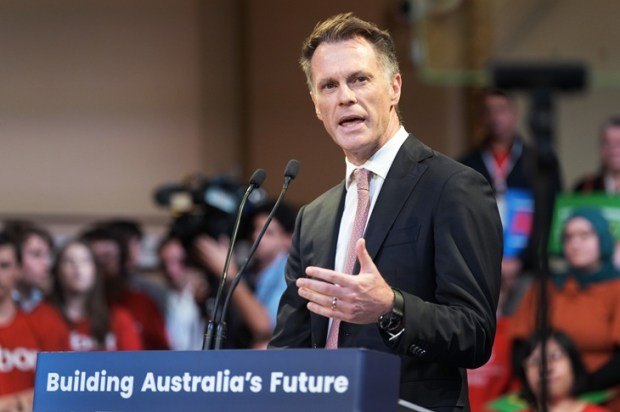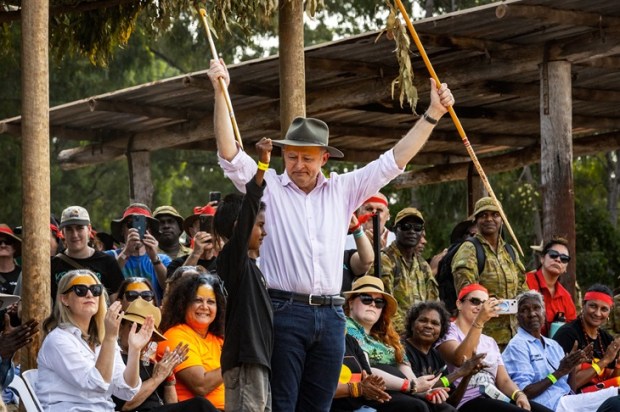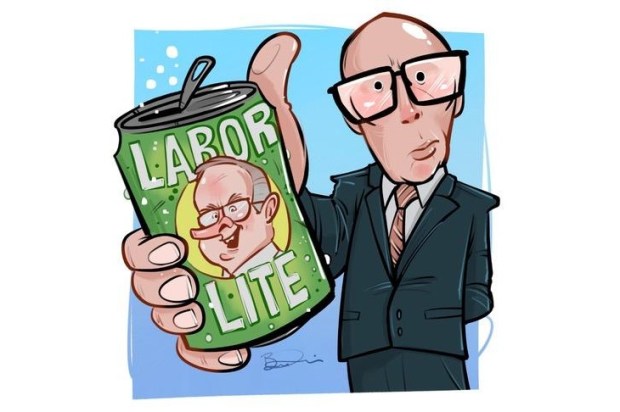Dear Rev. Costello,
You recently published an open letter to church leaders – such as myself – on the matter of The Voice urging us all to vote ‘Yes’. Thanks for putting your position out for discussion, but I found your reasoning unpersuasive and I’d like to take the opportunity to explain why. Particularly as a Christian leader myself, I’d like to even try and persuade you to change your position and vote ‘No’.
I was saddened to see that you question the character of those who vote ‘No’ compared to those who vote ‘Yes’. Especially when you and I know that only God can judge the motivations of a human heart. At the end of your article you explicitly state:
I fully accept that voting ‘No’ does not mean you are a racist. But I’m sure there’s not too many racists voting ‘Yes’.
But that really begs the question of what do you mean by the word ‘racist’? Earlier in your piece you reference approvingly of the writings of Martin Luther King Jr. stating that he was such an inspiration to you that, ‘I even named one of my sons after him.’ I thought it was significant though, that you failed to quote from – or even refer to – King’s famous I Have a Dream speech. Particularly the part where he said:
I have a dream that one day on the red hills of Georgia, the sons of former slaves and the sons of former slave owners will be able to sit down together at the table of brotherhood…
I have a dream that my four little children will one day live in a nation where they will not be judged by the colour of their skin but by the content of their character. I have a dream today.
King’s aspirational vision was that in the future people wouldn’t see race at all. That it would be what people were on the inside which would count more than what is on the outside. And where there wouldn’t be special treatment for any one group of people but they could sit at the seat of power equally, jointing making decisions which affect one another.
The underlying problem with The Voice is that it makes race the most important thing. This is what troubles so many Australians, and even Indigenous politicians such as the Federal Senator Jacinta Nampijinpa Price, Warren Mundine (former national president of the Labor Party), as well as the Aboriginal academic, Anthony Dillon. It’s that we’re all legitimately concerned that we’ll be separated by race, with one group receiving favoured treatment over another.
By the way, isn’t this precisely what the apostle Paul taught when he wrote:
There is neither slave nor free, there is no male or female, for you are all one in Christ Jesus. (Gal. 3:28).
As, such, don’t you think – especially as a minister of the Christian gospel – that by voting ‘Yes’ the old dividing wall of hostility between one group of people and another is being resurrected (i.e. Eph. 2:11-22) and that the nation as a whole is going to be inherently divided? Isn’t the current lack national consensus surrounding The Voice proposal even further proof of that fact? Ironically, the motivation for voting ‘Yes’ could be seen as perpetuating more social division on the basis of race than for those who are going to vote ‘No’.
Unfortunately, you also seem to be unaware of the less than unanimous support for The Voice amongst Indigenous people. Instead, you state, ‘We are voting in a referendum, not a partisan election. This referendum was requested by an overwhelming majority of Indigenous leaders.’ But this is a highly contested statement.
In my state of Tasmania where I am currently living, there is increasing animosity against The Voice, and this is coming particularly from Aboriginal Groups. As reported recently in The Australian:
Hostility between the TAC (Tasmanian Aboriginal Corporation) and newer, regional-based Aboriginal corporations is most acute in the northwest, where the Circular Head Aboriginal Corporation has growing influence. The two groups are often at loggerheads – over Aboriginal identity, voting rights, and land access – but are in furious agreement on one issue: the voice is no good.
Each has a range of reasons but a common theme is concern the other mob will gain control of the voice and disenfranchise them. Both would rather government consult with them and their elders directly than via a voice from which they felt excluded.
There are a significant number of Indigenous people who think that this not is the best forward to addressing disadvantage, not the least of which are Jacinta Nampijinpa Price, Warren Mundine and Anthony Dillon but are also represented by alternate voices such as Lidia Thorpe who do not think that The Voice goes far enough.
Why New Zealand Formed a Treaty but Australia Didn’t?
What surprised me most of all about your article was that you seem to not understand the historical context which led to the formation of a treaty in New Zealand with the Māori whereas Australia was not able to do the same thing here. You state in your open letter:
The Wilberforce evangelicals had more success in NZ. Why was the Treaty of Waitangi struck in 1840? Because of the strengths of that Christian evangelical vision in Westminster. It would be more than 150 years before native title was recognised as law in Australia in the Mabo case in 1992…
There is so much wrong with this paragraph that it’s difficult to know where to begin…
In terms of your first assertion, about why New Zealand developed a treaty and Australia didn’t, Bain Attwood has recently published an entire book on this very subject, Empire and the Making of Native Title (Cambridge University Press, 2020) which I’d highly commend.
Significantly, The Treaty of Waitangi – which you rightly reference – was formed in the same period, by the same explorer, following the same government instructions as when Australia was ‘discovered’ by Europeans. I am myself an ‘evangelical Christian’, but this wasn’t because as you state, ‘The Wilberforce evangelicals had more success in NZ.’ Instead, the historical situation was much more nuanced and complicated than you assume.
Rev. Costello, you also claim that the ‘No’ case is based on a massive scare campaign, similar to the fears people had after the Mabo decision in 1992. You state in your open letter:
It would be more than 150 years before native title was recognised as law in Australia in the Mabo case in 1992. Once again there was a massive ‘No’ case scare campaign claiming that Australians would lose our backyards with the Native Title Act. But as sensible voices at the time reassured us, not one centimetre was lost.
What has become clear over time though is that those fears have come to fruition. 2GB’s Ben Fordham has exposed a $100 million dollar ‘land grab’ for a public reserve near Sydney’s Balmoral Beach. Significantly, the land does not need to have any cultural significance with Nathan Moran – CEO of Metropolitan Local Aboriginal Land Council – saying in the interview:
The land councils are here to try and acquire what land we can get back within our boundaries to really form the asset base that will pay for … to sustain our councils.’
Isn’t this precisely what people were worried about? As Alexandra Marshall rightly argues in Flat White:
The notion of race-based lockouts and acquisitions of previously public land is repulsive. There is no excuse for it in the civilised world and certainly the concept would never be applied the other way. Can you imagine a site of colonial heritage locking out just Aboriginal people because their presence would offend the spirits? It would never happen, and it should not be happening here.
We live in hope that one day these pieces of land claimed under Native Title will be returned to all Australians, but right now we are in the middle of an assault on Crown Land.
It has been revealed that there are currently over 3,000 Native Title claims in the Sydney area, and 40,000 for New South Wales. That’s 40,000 claims to take away collective public ownership and instead place Australian land into the hands of a network of race-based groups.
The island of Australia is getting smaller every day if you happen to be born with the wrong skin colour.
The Indigenous people of Australia already have a voice. Especially when you consider that we currently have:
- 3,278 Aboriginal corporations
- 243 Native title bodies
- 48 Land councils
- 35 Regional councils
- 122+ Aboriginal agencies
- 3 Advisory bodies
- 145 Health Organisations
- 12 Culturally important Indigenous days
- Taxpayers give $30B annually for 984,000 people (3.8 per cent of the population)
- Expenditure per person in 2012-13 was $43,449 on Indigenous Australian compare to $20,900 on other Australians a ratio of 2.08 to 1 and increase from 1.95 in 2009.
Even more significantly, we currently have eleven Indigenous MPs in the Federal Parliament. That represents almost 5 per cent of the Parliament when Indigenous people themselves make up just over 3 per cent of the population. Why one could argue that Indigenous people are currently being over-represented, I actually think this is a good thing. Because this is how a healthy democracy works.
What if our Christian duty is to vote ‘No’?
I appreciate your passion Rev. Costello is prosecuting your case for the ‘Yes’ campaign. But all things considered, I believe my duty as a Christian is to vote ‘No’. Not because I’m a racist or because I don’t want indigenous people to succeed, but because I don’t think The Voice will achieve the positive changes people hope. Jesus said that you’d know the value of what someone teaches by its fruit (Matt. 7:15-20). All I can see the Voice producing is division, greed and inequity. And as such, I ask you to reconsider your own position and also vote ‘No’.

























